Concrete Patios in Emporia, KS
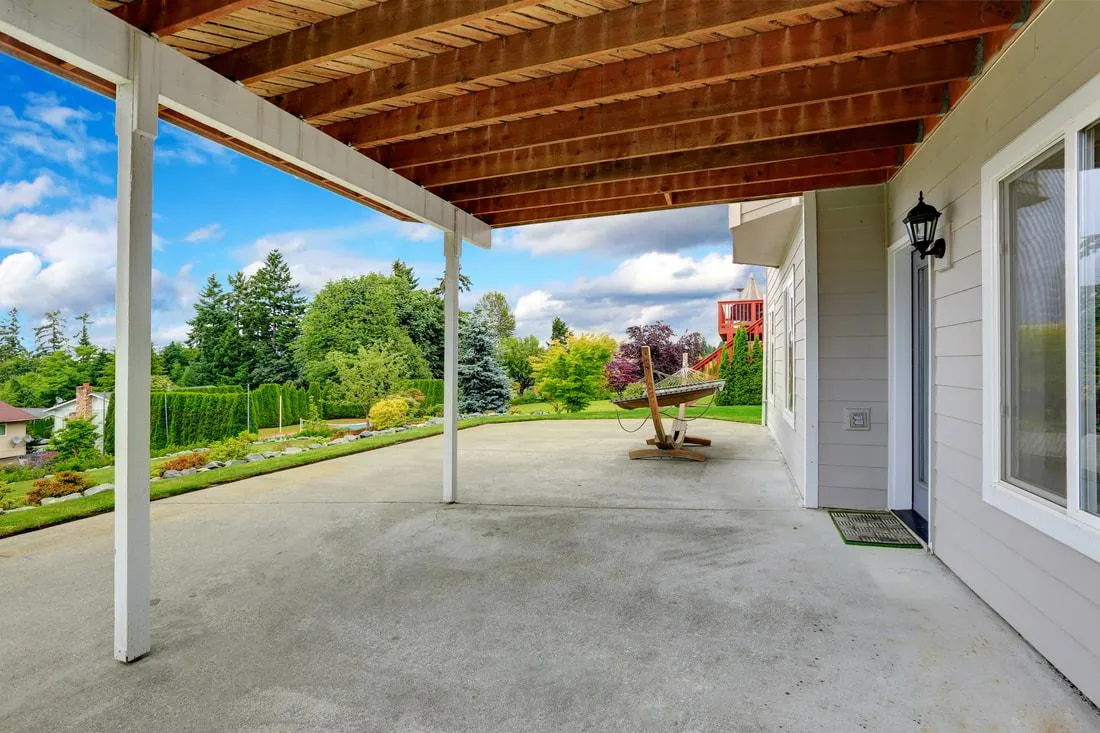
Our certified concrete specialist at Kansas Concrete Experts will provide you with a free quote for installing a concrete patio in Emporia. The process begins by excavating the soil to about 8 inches deep. Then, using a long straight 2×4, dig the interior of the patio. You should also have a level and a plate compactor handy.
Concrete is an excellent material for patios because it does not require a lot of maintenance. Unlike other patio materials, concrete only needs to be cleaned and sealed once every year. Moreover, it is cheaper than other options. Concrete patios are also mold and allergen-free, which means that you can use them all year long without worrying about allergies. And because of their versatility, you can create your own patio design. Whether you want a traditional concrete patio or a modern patio with a fusion of materials, a concrete patio in Emporia KS can be a great choice.
For a more sophisticated patio, consider installing a decorative stencil finish. This will add a touch of art to your patio. The contractor can even create customized stencil designs for you. The cost for a decorative stencil finish is anywhere from $1 to $10 per square foot. You can also choose to have your patio stained or stamped
Our certified concrete specialist at Queen Creek Concrete Solutions will provide you with a free quote for installing a concrete patio in Queen Creek. The process begins by excavating the soil to about 8 inches deep. Then, using a long straight 2×4, dig the interior of the patio. You should also have a level and a plate compactor handy.
Concrete is an excellent material for patios because it does not require a lot of maintenance. Unlike other patio materials, concrete only needs to be cleaned and sealed once every year. Moreover, it is cheaper than other options. Concrete patios are also mold and allergen-free, which means that you can use them all year long without worrying about allergies. And because of their versatility, you can create your own patio design. Whether you want a traditional concrete patio or a modern patio with a fusion of materials, a concrete patio in Queen Creek, AZ can be a great choice.
For a more sophisticated patio, consider installing a decorative stencil finish. This will add a touch of art to your patio. The contractor can even create customized stencil designs for you. The cost for a decorative stencil finish is anywhere from $1 to $10 per square foot. You can also choose to have your patio stained or stamped
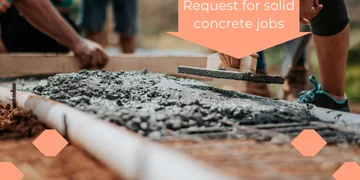
Contact Information
Property Information
Using a sealant on concrete patios can help prevent damage from heavy objects. Although concrete is resistant to the elements, it can still crack or shrink due to normal wear and tear. However, you should be careful when using products that contain ammonium nitrates and sulfates, as these chemicals can cause the sealant to corrode or lose its sheen prematurely. Similarly, you should also avoid using deicing salts on your patio. These substances can damage the concrete surface, particularly the sealant.
Concrete is an excellent material for patios because of its ability to blend in with the landscape. It can even be patterned to look like wood, stone, or marble. Its versatility also allows you to add other features, like benches, planters, or extra steps. You can customize a concrete patio to match the style of your home and exterior décor. Concrete patios are relatively inexpensive compared to other patio paving materials. The cost will vary depending on the size, style, and
location. A typical patio costs between $3 to $6 per square foot. However, if you want to have design elements like flowers or benches, you will need to spend extra money. You should also be sure to get a permit, as it is required in some cities. A permit can cost an extra $150 to $300.
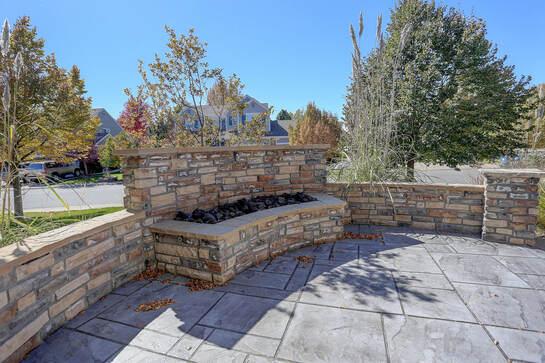
When deciding how to construct a concrete patio, it is important to consider the amount of weight it will bear. The strength of the slab is directly related to the amount of reinforcement, the thickness of the concrete, and the amount of area it covers. If you want to build a patio that supports a lot of weight, you should increase the thickness and use high-strength concrete. This type of concrete has a strength rating of 5 to 6,000 PSI. You may also want to add reinforcing mesh or rebar. This will help provide tensile strength and support varying pressure across the slab. In addition to the durability of plain concrete, you can also choose to use stamped concrete. It is more attractive than plain concrete and will blend in with the surrounding décor. It is easier to install than other types of concrete and less expensive. Furthermore, it will last for decades if you maintain it properly. Stamped concrete is also environmentally friendly. It is more affordable than stone and pavers. It has a high-end appearance and requires less maintenance.
Lastly, concrete patios are a great way to add value to your home. They can be less expensive than other types of materials, but the initial cost is significantly higher than that of brick and crushed limestone. And with recent lumber prices going up, it’s important to consider the cost of installing a concrete patio. Concrete patios can add substantial value to your home and are easily accessible. Adding a concrete finish can also help minimize the risk of tripping hazards. Depending on the type of concrete that you choose, the price of your concrete patio will vary considerably. The thickness of your concrete slab is also important as it will affect the durability of the patio. You’ll also want to consider the quality of concrete and the ratio of ingredients. The grade of concrete determines how hard it will be after it dries. If you want your concrete patio to last for several years, look for a mix that includes reinforcing fibers.
Reasons to Choose a Concrete Patio
Concrete patios offer many advantages including durability and design flexibility. These benefits have made concrete a popular choice for patios, and have made it the surface of choice for many concrete contractors. Nowadays, concrete is not only used for sidewalks and driveways but is also used for upgrading patios
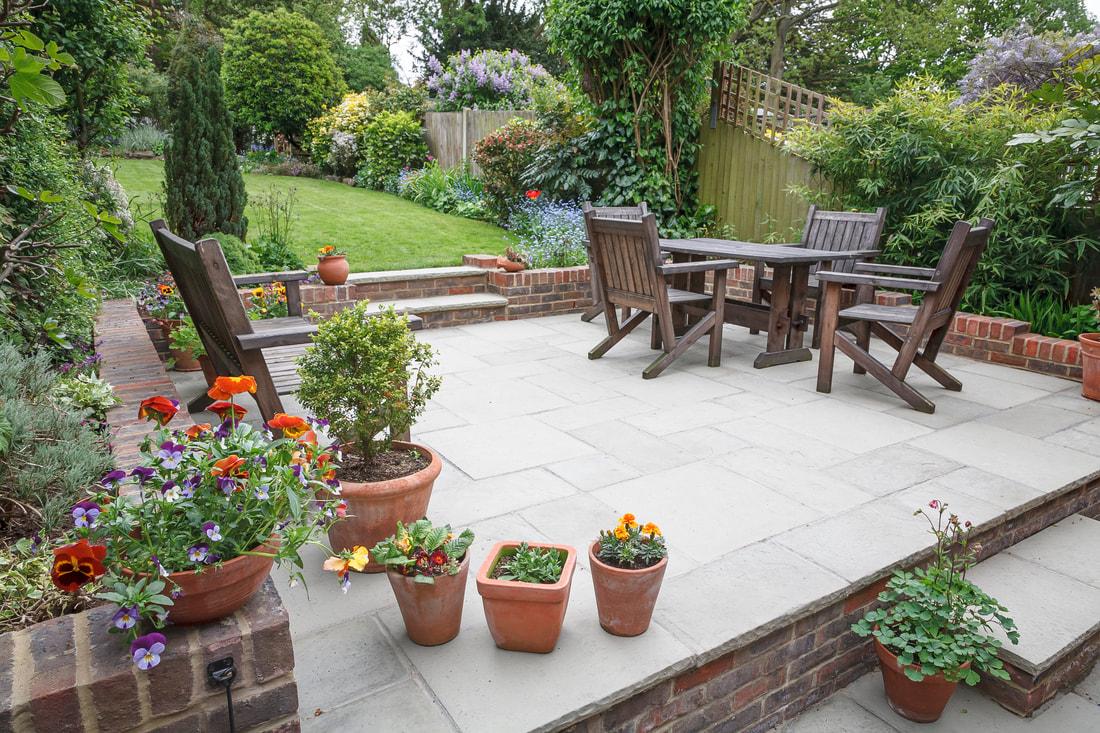
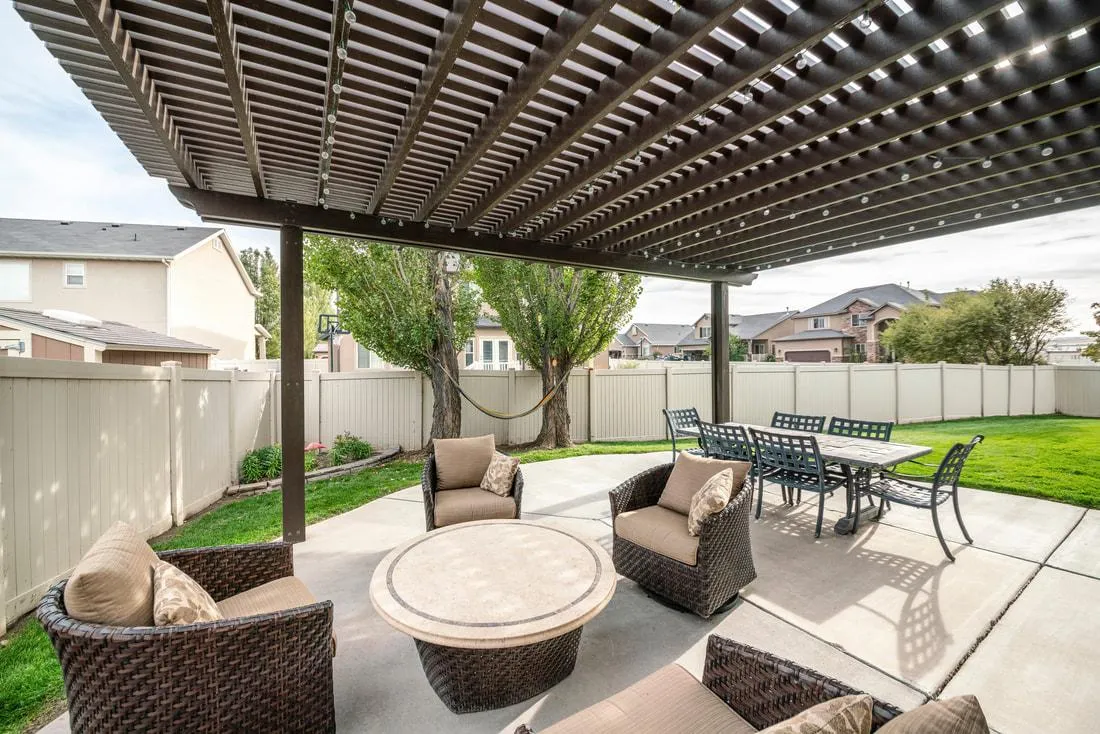
Stylistic Versatility of Concrete
Concrete is a versatile material, allowing homeowners to customize it to fit their home style. Concrete slabs can be stamped or brushed to mimic other materials, including wood or brick. They can also be colored to match the rest of the house’s exterior décor. Moreover, concrete is relatively low-maintenance and only needs regular cleaning. It is also a much less expensive option than other materials.
Staining or dyeing concrete gives the surface a unique color that matches the exterior of your home or landscape. It also adds cohesiveness to the patio. You can choose a color to match your home, or you can add a geometric pattern to the concrete surface. Concrete is an incredible material that has endless design options. It is also functional and easy to maintain. While it is a great choice for a patio surface, it is not for every style. Some homeowners prefer rustic or wood-like designs. In those cases, you may consider using other materials, such as bricks.
Concrete can be stained or dyed to give it a custom color. The dyes penetrate the concrete slab’s surface to produce a bold, saturated color. The stains react with the concrete’s chemicals, giving it natural-toned hues and gradients. In addition to staining, you can use concrete stamps to imitate brick or stone slabs, tile, or geometric patterns.
Concrete patios can be aesthetically appealing and can function as an outdoor living room or gathering area. These surfaces seamlessly merge interior and exterior living spaces. They can also accommodate a fireplace or water feature. Because of their versatility and low-maintenance, concrete patios can easily match the style of the house. Choose from a traditional or contemporary design to find a patio that suits your home and style.
Concrete is also an excellent choice for patios and other backyard projects. Aside from replacing an old patio, concrete is an excellent material for driveways, walk paths, pool decks, and other hardscapes. It can also be used for interior surfaces, such as countertops.
Cost Savings
Choosing a concrete patio surface can be very cost-effective, especially when compared to other materials. Natural materials like stone and wood tend to be more expensive and require more labor. But stamped concrete can be almost one-third less expensive than other materials. Plus, stamped concrete comes in a variety of designs and patterns that can mimic many other surfaces.
The price of a concrete patio surface depends on many factors, including how large the slab is. A large slab requires more concrete, while a smaller one requires less. It is important to use a concrete calculator to determine the exact amount of concrete needed for your project. Another factor that will affect the cost is the design of your patio. A simple square or rectangular shape is cheaper to build than a curve. More complex designs and intricate custom features will add to the cost.
Concrete is a durable material that requires little maintenance. Unlike wood, concrete patios do not require resealing, restaining, or regrouting. Its high strength can last for decades. Concrete patios are relatively inexpensive and require little maintenance. Unless you want to stain it every few years, resurfacing your concrete patio should cost around $3 to $7 per square foot. In addition, the cost of sealant is relatively inexpensive. If you are concerned about tripping hazards, consider refinishing your concrete patio.
Concrete can be stained or stenciled to add texture and aesthetics to your patio. This option, however, costs anywhere from $1 to $10 per square foot and requires frequent pressure washing and resealing. While concrete stenciling can be expensive, it delivers an aged craftsman’s look that will last for many years.
Prices will also vary depending on where you live. If you live in an urban area, the costs of labor and materials are higher. In rural areas, the cost of materials may be higher due to travel fees. Getting multiple quotes will help you find the best deal and determine your budget. Then, you can use a concrete patio cost calculator to help you determine how much to spend on the project.
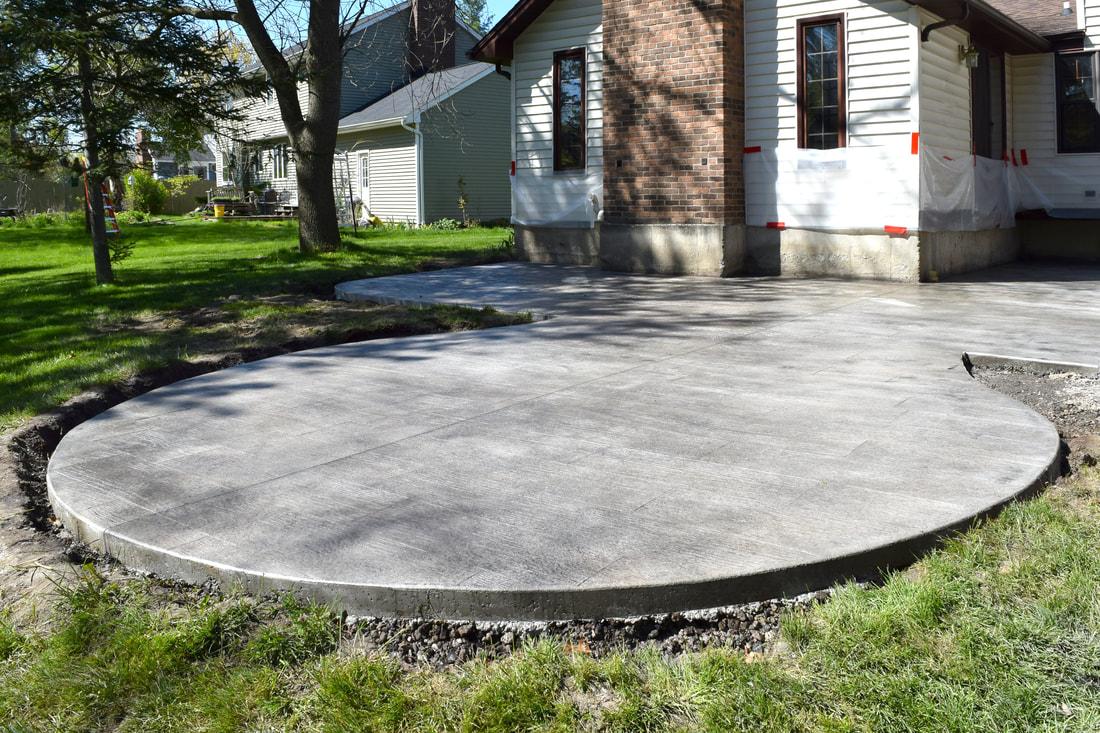
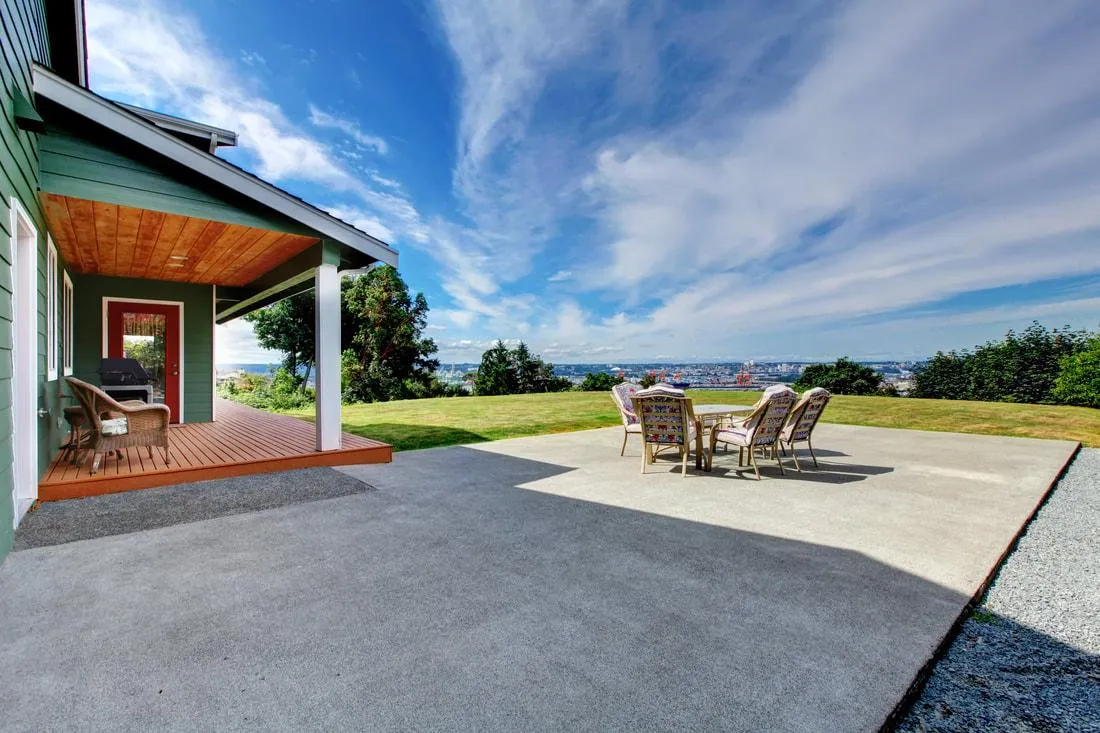
Longevity
While concrete is very durable, the concrete patio can wear out and crack over time. This is due to the presence of mineral content and environmental conditions. Fortunately, there are many maintenance and repair options available for patio surfaces. These options range from simple pressure washing to applying a patio coating to help protect your concrete from damage.
A concrete patio surface can last for decades if properly installed. In fact, concrete patio surfaces are able to withstand the elements for up to three decades without losing their structural integrity. In addition to this, concrete patio surfaces can be enhanced with steel reinforcement. These rebars and joints ensure that the surface will remain strong over time.
FAQ
Another option is stamped concrete, which is much more durable than plain concrete. This type of concrete is designed to mimic the appearance of brick and concrete pavers. In addition to providing a beautiful surface, stamped concrete can withstand heavy traffic and the demands of children and pets. Concrete patio surfaces are often a great choice for outdoor living spaces, but they can also show signs of wear and tear after many years of use. The presence of mineral content and environmental conditions can lead to cracks, splits, and staining. In order to maintain a beautiful and long-lasting patio, you should repair any cracks or deterioration as soon as possible.
Another advantage of concrete patio surfaces is their affordability. They are relatively inexpensive compared to brick or crushed limestone. However, their initial installation costs are more expensive than the latter two options. In addition, the longevity of concrete patio surfaces depends largely on the quality of the concrete used and the proportion of its ingredients. Generally, the grade of concrete is determined by its strength 28 days after it sets.
A concrete sealant can prolong the surface’s lifespan. In addition, polishing will restore its shine and reduce wear patterns. While polishing is not essential to extend a concrete patio’s lifespan, it is worth considering as a way to add extra protection.
Durability
Whether you’re looking for a beautiful, functional surface or an environmentally-friendly choice, concrete patio surfaces can last decades. They can withstand harsh climates and can even be reinforced with steel rebar. Despite its durability, concrete will eventually crack. In extreme temperatures, concrete will shrink and expand. If it cracks, it may be necessary to replace it with new concrete. However, this process can be expensive and can compromise the design of your patio.
Pavers are generally more durable than concrete patio surfaces, but they can still develop cracks. These are not a dealbreaker, but they can be unsightly. Moreover, repairing cracks requires patching the surface, which makes the repair difficult. In addition, the repair isn’t always possible to conceal the patch, so it affects aesthetics. If your budget allows, consider switching to pavers or other natural stone patio surfaces instead. These types of surfaces tend to last longer and are a more natural choice.
Concrete patios are another popular option for outdoor spaces. Compared to natural stone, concrete is incredibly durable and requires minimal maintenance. Additionally, you can mix and match concrete with wooden decking and patio furniture, so you can use your patio for a variety of purposes. Although concrete patios have long been considered a durable choice, you should be aware of their limitations. For one thing, concrete will crack over time, especially if you live in an area where the winters are unpredictable and thaw and freeze conditions are common. This can make a concrete patio an unsuitable choice for your home, especially if you have young children.
Concrete and pavers are the most common patio materials, as they are easy to install and come in various shapes and sizes. They can also be embossed to simulate natural stone, wood, or slate. These materials can be shaped and textured with the help of tools and mortar, which makes them a versatile option. Concrete patios are also the least expensive to build, and they last for years.
Concrete patios can last for 30 years or more, and unlike wooden decking, they don’t sink or warp in harsh weather conditions. They are also resistant to heavy patio furniture, foot traffic, and pets. Additionally, stamped concrete doesn’t allow weeds to grow through it.
Frequently Asked Questions
Question 1: What are the three main types of concrete?
The three main types of concrete are:Regular Concrete: Made with a mix of cement, water, and aggregate, used for most general construction projects.High-Strength Concrete: Designed to handle heavy loads and high-stress applications, often used in industrial and commercial projects.Lightweight Concrete: Contains lightweight aggregates, making it ideal for insulation and load reduction in specific construction need
Learn more about our concrete services at Kansas Concrete Experts for detailed applications of these types.
Question 2: What is the most durable concrete?
High-performance concrete (HPC) is considered the most durable. It is designed to resist environmental factors such as freezing, thawing, and chemical exposure, ensuring longevity in demanding conditions.Check out our durable concrete solutions at Kansas Concrete Experts for your next project.
Question 3: What are the five types of cement?
The five primary types of cement are:
Type I: General-purpose cement for everyday use.
Type II: Provides moderate resistance to sulfate and heat.
Type III: High early strength cement, used in fast-track construction.
Type IV: Low heat cement, ideal for large structures like dams.
Type V: High sulfate resistance, suitable for environments with high sulfate exposure.Visit Kansas Concrete Experts to explore the best cement types for your construction needs.
Question 4: What kind of concrete is used for sidewalks?
Sidewalks typically use regular concrete with a compressive strength of 3,000 to 4,000 psi. It provides durability and resistance to daily wear and weather conditions while being cost-effective.Find out how Kansas Concrete Experts can help with your sidewalk installation or repair.
